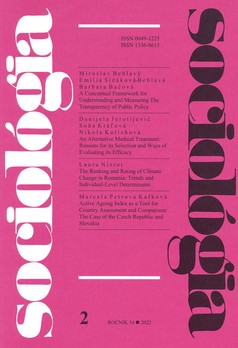Interpretativní sociologie zvířat? K možnostem pojetí zvířat jako sociálních aktérů z pohledu rozumějící sociologie Maxe Webera
Interpretive Sociology of Animals? On the Possibilities of Conceiving Animals as Social Actors from the Perspective of Max Weber's Sociological Approach
Author(s): Dušan Janák, jr.Subject(s): Social Theory, Sociobiology, Political Ecology, Environmental interactions
Published by: SAV - Slovenská akadémia vied - Sociologický ústav
Keywords: Sociology of animals; Max Weber; interpretive sociology; sociological theory; methodology of social sciences;
Summary/Abstract: The study explores the question whether and under what conditions the fundamental concepts of Max Weber's interpretive sociology - in particular "meaning" (Sinn) and "understanding" (Verstehen) - can be applied to animal behaviour, and whether and under what conditions Weber's concepts can be used to study the relationship of humans to animals as a relation¬ship of social actors to other social actors. With regard to the possibility of building an inter¬pretive sociology of animals in Max Weber’s spirit, his shift in the analytical concept of "meaning" is very important, namely the shift from the meaning which is fully conscious to the half-consciousness or unconsciousness of the meaning which is felt by the actor. Since the understanding of the animal and the human action is achieved in principle by the same means – through qualitative evidence and its verification by the rate of practical success - the rejection of the meaningfulness of animal action could also be applied to human actors. Apparently, denying the human actors an understanding explanation of their actions through the interpretation of subjective meaning would not only "destroy" the legitimacy of the inter¬pretive sociology, but it would also "rule out" the possibility of understanding human commu¬nicative acts as such. Therefore, it is reasonably of greater benefit to include animals among (potential) social actors and rather focus on their sociologically relevant differences from other - primarily human - social actors.
Journal: Sociológia - Slovak Sociological Review
- Issue Year: 54/2022
- Issue No: 5
- Page Range: 412-436
- Page Count: 25
- Language: Slovak

